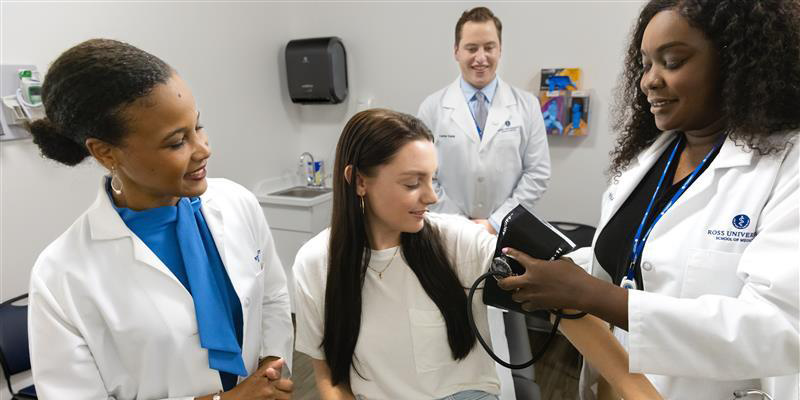Three pathways to medical school aim to address physician shortage while expanding global access to medical education.
Adtalem Global Education is creating new pathways for aspiring physicians in India, the United Kingdom and across the U.S. healthcare workforce to access medical school—and the timing couldn't be more critical.
With the world facing a shortage of 11 million healthcare workers by 2030, the nation's largest healthcare educator is launching three strategic programs through Ross University School of Medicine (RUSM) and American University of the Caribbean School of Medicine (AUC). The initiatives create clear routes from preparation to practice while maintaining the rigorous academic standards that lead to strong residency outcomes.
Meeting Global Demand With Scalable Solutions
The programs target distinct markets with proven demand.
Advanced Medical Preparation (AMP) India allows students to complete preparatory coursework in Bengaluru before transitioning to RUSM's campus in Barbados. India represents one of the world's largest markets for medical education, where demand far exceeds domestic capacity.
In the United Kingdom, AUC has partnered with the University of Wolverhampton, which offers a two-year accelerated BSc in medical sciences that guarantees admission to AUC for students who meet program requirements. It's the first partnership of its kind connecting U.K. higher education with Caribbean medical schools—and a blueprint for similar collaborations across Europe.
The ScribeAmerica partnership brings medical school within reach for healthcare workers already in the system. Through a new collaboration with ScribeAmerica in the United States, medical scribes and other health care pre-professionals in the ScribeAmerica network can receive conditional acceptance to RUSM or AUC, along with significant scholarship support designed to help remove financial barriers to pursuing a medical degree.
"We're seeing tremendous global demand for physicians, which is why we've designed multiple pathways into medical education that maintain our rigorous standards while expanding access," said Scott Liles, president of Adtalem's Medical and Veterinary schools. "Whether you're a premed student in Bengaluru, a healthcare worker in Fort Lauderdale, or pursuing medical sciences in the U.K., we're creating structured programs that meet students where they are."
Why Standards Still Matter
Every student entering through these pathways must meet identical admission requirements. They take the same licensing exams. They complete the same rigorous medical training.
RUSM and AUC have a combined 95% first time residency attainment rate for 2024-2025. The pathway programs expand the funnel without compromising outcomes.
"Our workforce is side-by-side with thousands of clinicians every day, striving to support the best possible care delivery," said Tony Andrulonis, M.D., CEO of ScribeAmerica. "This partnership with Adtalem gives them a valuable pathway and unique opportunity to pursue a first-rate healthcare education with significant financial support."
Building a Replicable Model
The broader implications extend beyond enrollment numbers.
Adtalem is demonstrating a scalable approach to workforce development—one that creates geographically diverse entry points into medicine while addressing documented demand. The company plans to replicate this model across additional markets and education systems, leveraging partnerships to expand access while maintaining quality standards.
For healthcare systems seeking qualified professionals, this represents a fundamentally different approach to pipeline development. Start with where the students are. Remove the barriers that don't serve quality. Scale what works.
After all, the world doesn't need fewer doctors. It needs more pathways to create them.
For more information, email the Adtalem Communications Team: adtalemmedia@adtalem.com.



